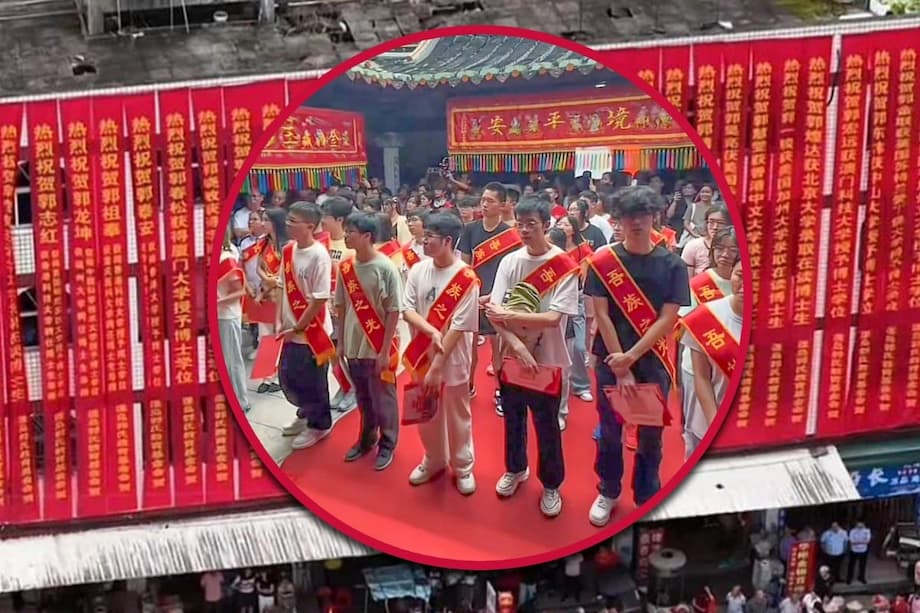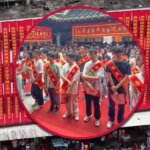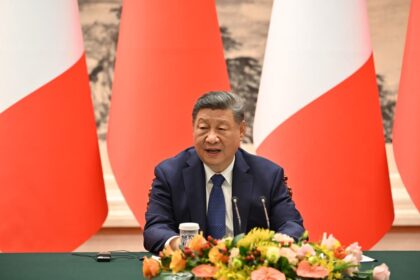Pengdao Village’s Remarkable Academic Legacy
In the mountainous heart of Fujian province, southeastern China, a small rural community has achieved a feat that has captured national and international attention. Pengdao Village, part of Nanan City, is now widely known as China’s “PhD Village” after producing 33 doctoral graduates from some of the world’s most prestigious universities. This extraordinary accomplishment stands as a testament to the power of education in transforming lives and communities, especially in places where resources have historically been scarce.
- Pengdao Village’s Remarkable Academic Legacy
- How Did a Remote Village Become a PhD Powerhouse?
- The Scholarship Ceremony: Honoring Achievement and Tradition
- Where Are Pengdao’s PhDs Studying?
- Why Is Education So Highly Valued in Pengdao?
- Social Media and National Attention
- The Broader Significance: Lessons for Rural China and Beyond
- Challenges and the Future
- In Summary
The village’s reputation soared in late August when a video of its elaborate scholarship ceremony went viral on Chinese social media. The event, held in the ancestral clan hall, was not just a celebration of academic achievement but also a powerful display of tradition, community spirit, and the enduring value placed on learning.
How Did a Remote Village Become a PhD Powerhouse?
Pengdao Village is home to around 6,000 residents and is nestled in a remote, mountainous region. Historically, the village struggled with poverty due to limited arable land and economic opportunities. For generations, families in Pengdao faced the harsh reality that hard work alone was not enough to escape hardship. Instead, they turned to education as a pathway to a better life.
According to Guo Dongyu, director of the Guo Family Education Fund, the tradition of valuing education has been passed down through generations. Parents have consistently emphasized the importance of learning and discipline from an early age. This cultural focus on academic achievement has become deeply embedded in the village’s identity.
Guo Dongyu explained, “Our award is designed to inspire students to cherish our country and hometown, engage in charitable acts, and work diligently.”
The village’s transformation from a poor, rural hamlet to a beacon of academic excellence did not happen overnight. It is the result of decades of collective effort, sacrifice, and a shared belief in the transformative power of education.
The Scholarship Ceremony: Honoring Achievement and Tradition
The annual scholarship ceremony, now in its second edition, is organized by the Guo Family Education Fund. The fund reflects the dominant presence of the Guo surname in the village and underscores the community’s commitment to supporting its youth. This year’s event was particularly special, as it honored one student admitted to Tsinghua University as a PhD candidate, 15 new master’s students, and 46 undergraduates preparing to start university in September.
During the ceremony, students donned red sashes inscribed with the Chinese characters wu zu zhi guang, meaning “the glory of our ancestral clan.” In a moving display of ancestral reverence, the students offered incense and bowed before memorial tablets, paying tribute to the generations that came before them.
The education fund distributed a total of 217,000 yuan (about US$30,000) in scholarships, with the highest individual grant reaching 8,000 yuan. These awards are not just financial incentives; they are symbols of the village’s collective pride and encouragement for the next generation to aim even higher.
To commemorate the achievements of its scholars, Pengdao Village has hung red scrolls bearing the names and alma maters of its PhD graduates on a prominent building. This public recognition serves as both an inspiration for younger students and a reminder of what is possible through perseverance and dedication.
Where Are Pengdao’s PhDs Studying?
The 33 doctoral graduates from Pengdao Village have attended some of the world’s top universities, both in China and abroad. Their alma maters include:
- Tsinghua University (China’s premier science and engineering institution)
- Hong Kong University
- Cambridge University (United Kingdom)
- Cornell University (United States)
These institutions are renowned for their rigorous academic standards and global reputations. Admission to such universities is highly competitive, making the village’s achievement even more remarkable.
Many of the graduates have pursued advanced degrees in fields ranging from engineering and science to economics and the humanities. Their success stories have become a source of pride not only for Pengdao but also for the broader region and the nation as a whole.
Why Is Education So Highly Valued in Pengdao?
In many rural parts of China, education has long been seen as the most reliable route out of poverty. For Pengdao, this belief is especially strong. The village’s limited farmland and lack of industrial development meant that traditional means of economic advancement were not viable for most families. Instead, parents invested heavily in their children’s education, often making significant personal sacrifices to ensure they could attend good schools and universities.
This focus on education is reinforced by the village’s social structures. The Guo Family Education Fund, for example, is a community-driven initiative that pools resources to support promising students. Such collective efforts help to level the playing field for children from less affluent backgrounds and create a culture where academic achievement is celebrated and rewarded.
Moreover, the public recognition of scholars—through ceremonies, red sashes, and scrolls—serves to motivate younger students and reinforce the message that hard work and dedication can lead to success, even in the face of adversity.
Social Media and National Attention
The viral video of Pengdao’s scholarship ceremony has brought the village’s story to a much wider audience. On Chinese social media platforms, users have expressed admiration for the community’s achievements and the values it represents. Many have commented on the importance of education in overcoming hardship and building a better future.
Media outlets across China and internationally have covered the story, highlighting Pengdao as a model for other rural communities. The village’s success has sparked discussions about the role of education in social mobility and the ways in which collective action can drive positive change.
Expert Perspectives
Education experts note that Pengdao’s experience is a powerful example of how targeted support and a strong community ethos can yield extraordinary results. While not every village can replicate Pengdao’s exact model, the principles of investing in education, fostering a culture of achievement, and providing tangible support to students are widely applicable.
One education analyst commented, “Pengdao Village shows that even in the most challenging circumstances, a community’s shared commitment to education can break cycles of poverty and open doors to global opportunities.”
The Broader Significance: Lessons for Rural China and Beyond
Pengdao’s story resonates far beyond its borders. In China, where the urban-rural divide remains a significant challenge, the village’s achievements offer hope and inspiration. They demonstrate that with the right support and values, rural communities can produce world-class talent and contribute to the nation’s development.
The village’s approach also highlights the importance of honoring tradition while embracing modernity. The scholarship ceremony, with its blend of ancestral reverence and celebration of academic success, reflects a harmonious balance between old and new. This cultural continuity provides a strong foundation for the community’s ongoing progress.
For policymakers and educators, Pengdao’s example underscores the need to invest in rural education, create supportive environments for students, and recognize the achievements of those who succeed against the odds. It also shows the value of community-driven initiatives, such as scholarship funds and mentorship programs, in nurturing talent and fostering social cohesion.
Challenges and the Future
Despite its successes, Pengdao Village still faces challenges common to many rural areas. Economic development remains limited, and many of its brightest graduates pursue careers in cities or abroad. This “brain drain” is a concern for the long-term vitality of the village.
However, the community’s leaders are hopeful that the achievements of its scholars will inspire future generations to give back. The Guo Family Education Fund, for example, encourages recipients to engage in charitable acts and contribute to the village’s development. There is a growing recognition that academic success can—and should—be leveraged to benefit the broader community.
As Pengdao continues to celebrate its scholars, it also looks to the future, seeking ways to sustain its educational legacy and ensure that the next generation has the tools and opportunities to succeed.
In Summary
- Pengdao Village in Fujian province, China, has produced 33 PhD graduates from top universities worldwide, earning it the nickname “PhD Village.”
- The village’s annual scholarship ceremony, organized by the Guo Family Education Fund, celebrates academic achievement and honors tradition.
- Education is highly valued in Pengdao, seen as the primary route out of poverty and a means of community advancement.
- The village’s success has attracted national and international attention, serving as an inspiration for other rural communities.
- Challenges remain, including economic development and retaining talent, but Pengdao’s story demonstrates the transformative power of education and collective action.












